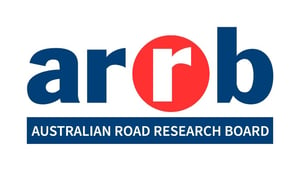First published in the AITPM newsletter
The Australian Road Research Board, generally known as ARRB, was formed in 1960. It began operations out of an annex of the Country Roads Board (Now Vic Roads) in Kew in Melbourne. In 1972 staff moved to a specialist facility in Vermont South in Melbourne.
Recently they appointed a new CEO, Michael Caltabiano, whose background is that he studied and worked in engineering and moved on to politics, public administration and private company management. Most recently he was the CEO of Australian Asphalt Pavement Association. Michael has a very clear vision for ARRB. We were very fortunate to be able to meet with him and then record an interview which can be heard here.
Some of his comments from the interview include:
- The organisation will go back to the full title Australian Road Research Board because it clearly states, up-front, what they are about.
- When CEO of the Australian Asphalt Pavement Association he saw that the organisation was traditionally focused on delivering some really good outcomes in the field but when he commenced there three and a half years ago they had lost their way in the technical space and what he did for them was to bring back that very strong technical focus in partnership with road agencies, and they brought in some really significant world first technological changes.
- Australian Road Research Board is in the applied research space. Its research has to have real, meaningful and tangible outcomes for the community.
- A safe systems approach is something that they are embedding in all new road design and they are working with road agencies across the country to incorporate the principles of safe systems into everything that they do. It is a "marvelous change" that will deliver the next step change in road safety outcomes research.
- They are totally focused on ensuring that the community is part of this journey. About eight months ago they instigated a new branch called Human Factors with Dr Michael Regan who is an eminent expert in the field leading our human factors. They will be looking at how people behave and respond to infrastructure and how they behave and respond to the stimuli.
- They will have a multi-disciplinary team following problems like they have never been done.
- There has been a lot of focus on autonomous vehicles in the last few years but there hasn't been enough real focus on how the infrastructure will “talk" to those vehicles. Can the road surface emit a signal to tell drivers about conditions ahead; how do we allow electric vehicles to be recharged as they're driving through induction loops in the pavement at 80 or 100 kilometres an hour?
- Dr Michael Reagan is working with the Australian agency that looks after ANCAP ratings in cars. We currently have a five-star NCAP rating. He is working on a 6th star that relates to the internal cabin features. So how does a driver interact with the car, how does the car technology ensure that the driver remains not distracted and focused on the road? The manufacturer gets a 6th star if the technology in the car facilitates better driving behaviour.
- They plan to articulate the issues for the community and have much higher levels of engagement with the community directly, i.e. to listen to what their concerns are, understand the problems and develop programs to deliver the answers. They do not plan to be a flashy organisation that you see on TV every night having a say about everything. They are going to be really diligent, intelligent and articulate in an applied research environment to solve those challenging problems for tomorrow's transport future.
- They are going to move the head office from the current Vermont South location. The laboratories at Vermont South will become part of a collaboration with one of Melbourne's greater institutions. They are currently in negotiations with University of Melbourne, Swinburne University or Monash University. They plan to establish an expert laboratory for pavement engineering facilities. This will "create for the first time in the Southern Hemisphere a pavement engineering Centre of Excellence.... and give Australia its first real focus from an undergraduate through masters into postgraduate programs". Moving to a near CBD location will help attract the brightest and the best professional staff and really encourage collaboration both within the staff groups, across the professions and with their members.
- The new office will be an open public facility where people can come in, visit the library and see the webinars among other things. It's the next generation of ARRB's existence as a really important part of the Australian community.
- In the interview Michael announced publically for the first time his vision for the Australian Road Research Board International Conference. It will be in April 2018 and held in Brisbane. The theme of the conference is all about connectivity and collaboration and will include international speakers and will attract an international audience.
